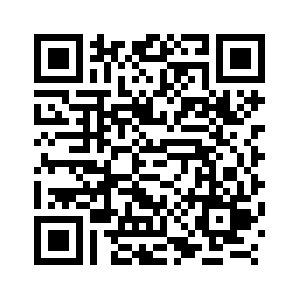by Xinhua writer Shang Hao
JERUSALEM, April 29 (Xinhua) -- Chinese automakers have gained more and more popularity in the Israeli market with electric vehicles (EVs) amid the Israeli government's ambitions to gradually phase out fossil fuel vehicles.
In a showroom of China's automaker Geely Auto Group in the central Israeli city of Tel Aviv, Segal Yafa, a buyer from the south of the city, has signed a contract for three China-manufactured Geometry C electric vehicles.
"One for my husband, one for myself, and one for my friend," Yafa told Xinhua.
Most Israelis began to know about the Chinese brand Geely since its launch of Geometry C EV in November 2021. With dashing looks and affordable prices, Geometry C has achieved a strong market share here quickly, becoming the winner in the "Best Buy of the Year" category for 2022 nominated by Israel's major car magazine Auto.
"Good price, strong power and less pollution... it gains a good reputation," Yafa explained the reason for her choice.
Ronan Yablon, CEO of Geely Israel, told Xinhua that they have received more than 8,000 orders in less than five months.
Geely is a good example of the Chinese EVs in the Israeli market over recent years amid an ambitious green vision of the country.
According to a plan initiated by the Israeli Ministry of Energy in 2018, the import of vehicles powered by polluting fuels will be banned as of 2030, which makes EVs an irreplaceable choice for the public.
"The plan affects the welfare of all, and should not be delayed," read a statement from the ministry about the plan.
Yablon noted that "one of the most important goals with electric vehicles is to lower pollution."
To encourage the import and purchase of EVs, the Israeli government has offered tax incentives and free registration for EVs. Until 2023, Israel plans to tax EVs at a significantly lower rate of 10 percent, compared with regular vehicles at 83 percent.
In addition, a total of 30 million new shekels (9.11 million U.S. dollars) have been allocated for the public EV charging infrastructure across the country.
"Most consumers in Israel are the middle class who value price advantages. We do have European EV makers, but they are more expensive, and Chinese EVs are good value for money," Tomer Hadar, an automotive editor for Calcalist, Israel's largest financial newspaper, told Xinhua.
Hadar added that "the Chinese EVs have won the hearts of Israelis due to their reliability and technology with excellent long-lasting batteries."
For a long period, Japanese and Korean automakers have dominated the Israeli market, but now Chinese automakers are trying to overtake their traditional competitors by switching lanes in the race for EVs.
"In terms of fuel vehicles, Israelis are more familiar with non-Chinese cars, but in the field of EVs, no one owns the experience as China," stressed Yablon.
In the first quarter of 2022, around 5,000 EVs were sold in Israel, among which some 750 EVs were from Geely, occupying a market share of 15 percent, according to Yablon.
Hadar expects that 15,000 to 20,000 EVs will be sold in Israel this year, and more than half of them will be Chinese ones.
Besides Geely, China's Hongqi EV has also hit the headlines of some Israeli media and gained the attention of buyers.
Chinese automaker FAW Car started selling its Hongqi E-HS9 EV in Israel in April, providing the market a new choice with a long range of 510 km and a 99-kWh battery.
"I'm impressed more with the interior design, almost perfect," Danile Shpitz, an Israeli buyer, told Xinhua in a showroom of Hongqi EVs in Tel Aviv.
Geely, FAW, Aiways, SAIC MG, BYD ... EVs from more than 10 Chinese automakers have got into the Israeli market by the second quarter of 2022.
Some Israeli car importers are in talks with various Chinese automakers to bring and sell their EV products here, said Hadar.
"Chinese brands now have a strong foothold in the Israeli market and the potential is amazing," Hadar told Xinhua. ■



